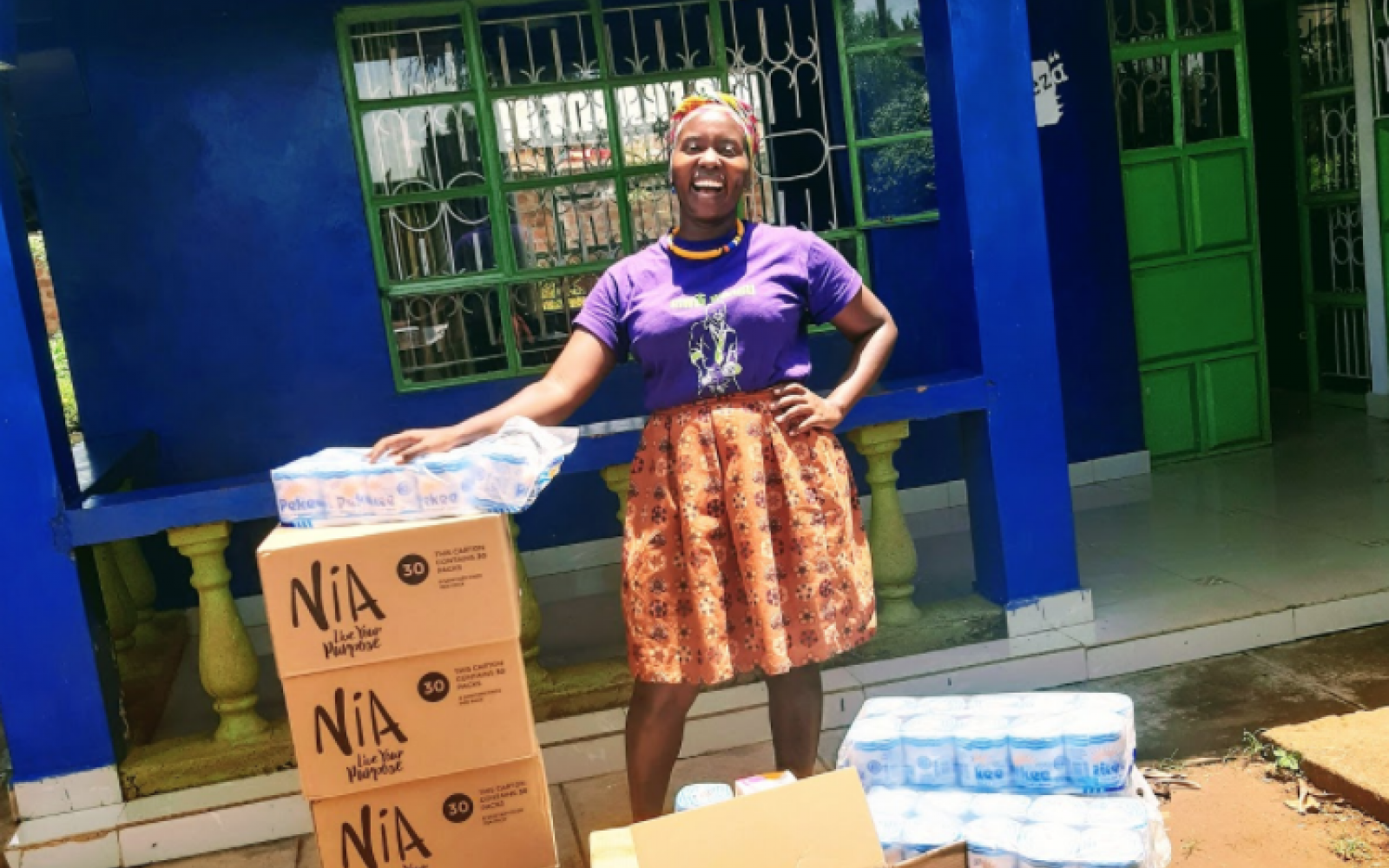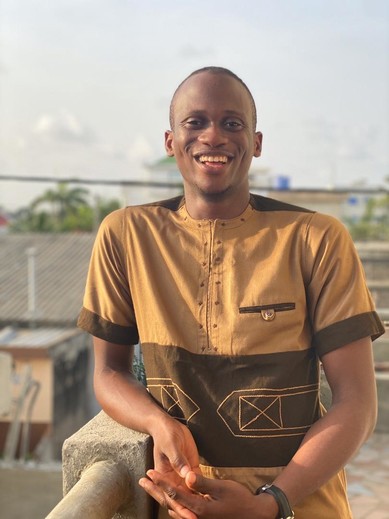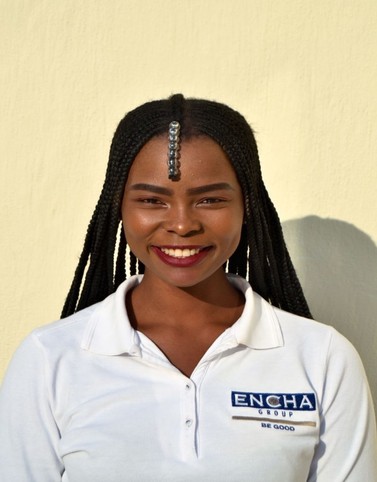Young leaders mobilize across Africa: How Africa’s vast youth population is stepping up with creative solutions during the coronavirus pandemic.


One of Africa’s strengths is that we have the youngest population,” says Augustino Agbemavo, a 26-year-old who runs a mobile library in Benin. Nearly 60 percent of Africa’s population is under age 25. Now, as he’s collaborating on education solutions for the global pandemic, Augustino is seeing young people stepping up to prepare and protect their communities—often using the power of digital technology.
In Benin, young people are creating information campaigns, from a song in local languages to short videos. University students are innovating automatic hand-washing systems and producing sanitizers and masks locally.
While the novel coronavirus continues to have a devastating impact, it’s also sharpening young leaders’ changemaking skills. “The COVID-19 pandemic period is where young people’s creativity, agility, and ability to innovate comes into play,” Augustino says.
Meet four young changemakers leading the way in Nigeria, Benin, Kenya, and South Africa.
Learning must go on
When Benin’s government sent students on Easter holiday one week early, then restricted movement for everyone, the country’s libraries closed— and they aren’t accessible online. Augustino decided to turn his school mobile library into a home delivery subscription. The team made an online form for parents — in just two days, kids were receiving books.

Augustino Agbemavo founded Bookconeckt in Benin, Africa.
Right after the government’s decision, Augustino and his team were invited to a task force with six other start-ups to help create educational continuity while schools stayed closed. The group came up with different solutions depending on where students are and their internet access. “Even if schools resume, those solutions are very relevant for Benin’s education system and contribute to its quality,” Augustino says.
Meanwhile, in South Africa, Thabiso Maboate is creating a different kind of education solution. She’s a leader (“Ranger”) at the Supreme Cadets Institute, a youth-led nonprofit that provides tutoring every Saturday and during school holidays to students, helping to break cycles of poverty.
When gathering—including for school—was prohibited, “we realized that this would affect the academic performance of our learners (“Cadets”) because not all of them can study by themselves and not all of them had the means to study on their own,” Thabiso says.

Thabiso Maboate is a leader at the Supreme Cadets Institute, a youth-led education organization
After listening to the students, the team formed WhatsApp discussion groups, facilitated by Rangers, organized by grade and subject. They’re also using free e-learning apps to distribute material and upload tutor videos, assignments, and assessments.
The new program is prompting a longterm shift, Thabiso says. “We realized during this time that some of our Cadets do not know or understand how to use the internet or the different online platforms,” she says. “Post COVID-19, this has become an avenue we want to explore and expose our learners too.”
“Menstruation doesn’t stop for pandemics”
“The pandemic has given rise to threats beyond the risk of infection,” says Natalie Robi Tingo, a young leader behind Msichana Empowerment Kuria in Kenya. “Our biggest worry when the first case of the Coronavirus was reported and measures began being imposed was the increased risk of girls from vulnerable families to have a meal, let alone menstruation essentials.”

Using social media, Natalie and her team raised donations from their community of friends and supporters. For three weeks, they’ve helped 320 girls in Kuria to access to menstrual care, setting up a menstrual care bank with essentials— like sanitary pads, soap, sanitizers, tissue paper, and underwear—with the goal of providing support to at least 500 girls for 4 weeks.
Seeing disturbing reports on the uptick in cases of violence against women since the shutdown, Natalie is determined to also take action on this issue. “I am alarmed by the increased cases of sexual violence during the crisis. To address this we work closely with other community leaders to strengthen community surveillance and reporting mechanisms,” she says. “We have received support ministry of Health, the police, and judiciary to address these cases.”
Spreading the word
Uche Udekwe is often interacting with pregnant women and nursing mothers in underserved rural communities through his organization, Natal Cares. One day, in a random conversation, he was surprised to learn that many of them didn’t believe in the threat posed by COVID-19 due to misinformation — myths that the coronavirus couldn’t survive under Nigeria’s heat, or that it’s a rich man’s disease that won’t impact rural communities.
“It was this moment that sparked my desire to make a difference,” Uche says.
He decided to use mobile technology to spread accurate information. His team is sending messages in six different languages — focusing on people living in underserved communities and IDP camps in Nigeria. They include symptoms, preventative measures, and daily statistics from around the world. For those who can’t read, the team sends voice messages, including voice activated commands to personalize health information.
Natal Cares is also providing affordable, high quality kits of sterile supplies — like hand sanitizer, masks, gloves, soap, tissue paper and more — to help people stay safe.
New leadership
As our reality is constantly changing, Uche also sees change happening inside young people.
“Currently, young people are becoming more conscious of their power and are making a difference,” he says. “A typical example is the ‘NOT TOO YOUNG TO RUN INITIATIVE’ in Nigeria, where young people from all walks of life united together to fight for the rights of qualified young adults to be voted into public office.”
The coronavirus pandemic has added urgency — as well as visibility — to the movements young people have been hard at work building. Looking to the future, the ideas they’re implementing — from online learning programs to health alerts — will continue to impact their communities.
“By harnessing the power of technology, young people have found a very potent way to make their voice heard at every level,” Augustino says.